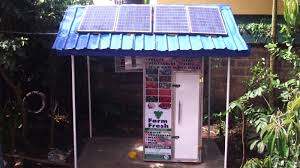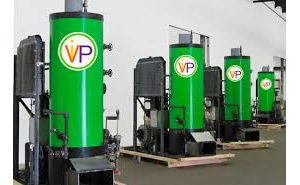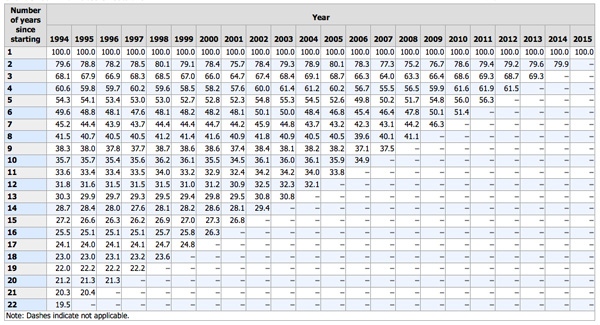Czero partners with FACTOR[E] Ventures to grow tech startups aiming to change the world’s energy future
Czero’s R&D experts frequently help startups and investors evaluate technology feasibility and differentiation, establish technical approaches and programs, and engineer more profitable, investment-ready products faster with less risk. This has been the foundation of our work with FACTOR[E] Ventures, a joint venture between the Energy Institute at Colorado State University (CSU) and the Shell Foundation.
More than a venture capital firm and different than a business incubator, FACTOR[E] both invests in and actively co-develops energy technology innovations with startups focused on improving affordable access to sustainable energy in developing countries.
While FACTOR[E] client companies have diverse strategies for achieving these aims—ranging from deploying smart microgrids to using biowaste for electricity generation—what they share is high potential to make a global impact, to improve the lives and livelihoods of millions of people with greener technologies.
The urgent global challenge
According to United Nations statistics, 1.4 billion people worldwide live in poverty, unable to fulfill their basic needs. In terms of the modern global economy, one major factor is their lack of consistent access to affordable energy, which limits local opportunities, technologies, efficiencies and growth—especially in rural areas.
It’s hard for small businesses, artisans and farmers without energy access to compete with larger operations that have, for example, electricity for workshop lighting after dark, refrigeration for perishable harvest or mechanical processing. Many families living near subsistence level as well as micro-businesses with small margins simply can’t afford to buy conventional energy, no matter the form, even when it’s available locally.
Lack of energy access limits the solutions we can use to address problems of food security, sanitation, medical care, education, work conditions, gender equality, land use, clean water, air quality and non-renewable resource use.
Ultimately, action requires energy.


FACTOR[E] client company ColdHubs has developed solar-powered, pay-to-store walk-in refrigeration units, for use in developing countries where as much as 45% of the fruits and vegetables produced spoil before reaching market.

These small-scale, heat-and-power plants, developed by Village Industrial Power—also a FACTOR[E] client—use biomass as fuel to reliably generate up to 10 kW electrical energy and 50 kW thermal energy off the grid.
"There’s huge urgency to the work we’re doing, from both humanitarian and environmental standpoints. We have well over a billion people living in poverty worldwide, and at the same time, we’re in a race against the clock when it comes to greenhouse gas emissions, global warming and non-renewable resource use. The bulk of new infrastructure that’s being built and about 90% of the energy load growth that’s happening globally is happening in the developing world."
—Morgan DeFoort, CEO, FACTOR[E] Ventures
Accelerating development of triple-bottom-line solutions
A thesis-driven venture development firm, FACTOR[E] makes investment choices based on the predicted future of the energy industry and on thoroughly understanding the complexities of current and needed technologies in this domain.
"By 2030, we want to see large-scale access to sustainable energy. To achieve this, we need ‘leapfrog’ companies to come in and displace conventional technologies before carbon-heavy, health- and environment-damaging technologies become more entrenched. That’s our mission at FACTOR[e]: getting home-run companies up and running to address these challenges ASAP, in ways that are sustainable, profitable and socially responsible."
—Morgan DeFoort,, CEO of FACTOR[E] Ventures
The FACTOR[E] model has been an exceptional fit for Czero’s triple-bottom-line mission: using engineering to develop profitable products that solve energy challenges and make a difference for people, the economy and the environment. We have worked closely with FACTOR[e] and several of its client startups, including Village Industrial Power and ColdHubs, to do just that.
"We turn to Czero as a pool of engineering talent for our diverse client companies. For seed-stage companies, having access to specialized, high-quality engineering resources on an as-needed basis expedites development of better products without increasing burn rate due to recurring engineering costs. Czero has been a valuable strategic partner in helping FACTOR[e] startups advance technologies quickly while staying lean during their crucial first two years."
—Morgan DeFoort, CEO, FACTOR[E] Ventures
An adaptable working partnership
Czero’s role with FACTOR[E] has varied considerably based on a project’s startup team, technology and investment readiness level (IRL).
Pre-investment: Vetting and improving technology readiness
The FACTOR[E] thesis-driven, venture development model relies on deep knowledge of energy sector technologies, trends and prime innovation opportunities. FACTOR[E] also has very specific investment criteria that differ from conventional priorities.
Said DeFoort, “When we invest in a company, yes, we want a solid financial return, because otherwise it’s not a sustainable company, but the up-front emphasis is on doing whatever it takes to succeed responsibly with the right technologies.”
Pre-investment, FACTOR[E] has enlisted Czero’s engineering and product development experts for techno-economic analysis and feedback on cost/benefit tradeoffs. By evaluating a startup’s technology concepts, approach and financial models, Czero can help determine their viability and tune them for greater success. This is valuable both for investors deciding whether or not to invest and for startups wanting to make the strongest technical case to recruit investment.
Post-investment: Advancing lean startup technologies
Working with Czero gives startups flexible access to the combined expertise of our engineering team. This means they can work with different specialists at different times based on project need: designers, system analysts, thermal management experts, embedded controls engineers, etc. For most startups, it’s impractical and cost prohibitive to build an equivalent engineering team in-house. Plus, for early-stage startups the need for engineering can be intermittent, not requiring enough consistent work to merit full-time engineers.
Projects

Increasing rural access to affordable electricity
To provide communities and small enterprises in rural areas with consistent access to affordable power, FACTOR[e] startup Village Industrial Power (VIP) has developed a small-scale, combined heat-and-power plant that uses biomass fuel such as coconut husks, corn cobs, sugar cane bagasse or wood. The low-cost, low-maintenance VIP steam engines can efficiently and reliably generate up to 10 kW electrical energy and 50 kW thermal energy.
Matching the technology to local energy resources
External combustion (EC) engines fell out of common use in the early 1900s, when higher-quality, more dense fossil fuels became widely available in industrialized nations. VIP is making a smart revival of this old technology for use in developing regions because EC engines can readily burn different fuels. Biomass fuels, while lower power density than fossil fuels, are considerably cheaper and often locally abundant in rural areas as agricultural byproducts.
Czero’s role in product development and design for manufacturing (DFM)
For this project, Czero engineers worked with the VIP team to reduce the system’s cost and complexity and optimize the generator design for assembly in rural communities.
"There are always engineering and design tradeoffs in moving a product through the development cycle: from the first relatively high-cost, one-off engineering prototype; to a design suitable for low-volume production for broader field testing; to a design ready for lower-cost, higher-volume commercial manufacturing.
The series of logical next steps differs for each product and depends on the size of the next planned manufacturing run. We’ll probably make different choices if we’re producing 100 units versus 10,000 or if a product will be assembled locally in a rural village versus assembled in a large plant and transported.
These were all considerations in the design for manufacturing (DFM) work we did with Village Industrial Power."
—Guy Babbitt, Ph.D, Co-founder and CEO, Czero

Helping small farmers keep harvested food from spoiling
As much as 45% of the fruits and vegetables grown in the developing world spoils before reaching market, due in large part to lack of refrigeration. This is a tremendous waste not only of food but also of labor, water, fertilizer and transportation fuel. It also contributes to the pressing issues of poverty, food insecurity, land use changes and topsoil loss.
To address this major global problem, ColdHubs has developed solar-powered, off-grid, walk-in cold storage units that farmers can use on a pay-to-store basis. ColdHubs estimates that for the world’s 470 million smallholder farmers, affordable access to refrigeration could reduce their post-harvest losses of perishable food by up to 80% and increase their annual income by up to 25%. Correspondingly, the technology could also increase food security in these regions by increasing viable local supply to fill shortfalls.
Czero’s role in technology analysis and engineering
In vetting ColdHubs as a venture development opportunity, FACTOR[e] enlisted Czero for expert, third-party review of the startup’s proposed technical approach and financial models. In the process, Czero identified opportunities to improve returns and reduce technical risk.
Once FACTOR[e] and ColdHubs had engaged, Czero contributed to engineering by analyzing the system design and proposing alternative thermal management strategies to reduce complexity and increase efficiency in the solar-powered system.
An innovation recognized by the United Nations
FACTOR[e] isn’t alone in seeing the potential of ColdHubs technology to change the world. The United Nations chose ColdHubs from a competitive field of 800 companies to present at the UN Solutions Summit in 2015. The summit, at UN headquarters in New York, featured 14 innovators directly addressing the UN’s sustainable development goals “for global dignity, prosperity, partnership, and justice for all people and the planet.”
FACTOR[e] – A RELATIONSHIP CATALYST
Saving time and reducing risk for startups and Czero
For companies on the startup runway, time is of the essence. So too for Czero, whose innovation engineering services are in high demand. Yet when it comes to new partners for new ventures, it takes time to build relationships, and there’s always an element of risk. This is where FACTOR[e] plays a vital role in bringing the right vetted companies together as collaborators in technology development.
"Startups can’t afford to choose the wrong partners. Often, however, they don’t have the immediate connections, financial security or project scope to attract the right ones. For established companies, working with startups can be high risk, high time-investment, short term and low return—especially when you consider 30% of startups don’t make it to year three.
FACTOR[e] solves both sides of this equation. We streamline and de-risk the process for both our vetted startups and our trusted technology development partners."
—Morgan DeFoort, CEO, FACTOR[e] Ventures

Survival rates of establishments, by year started and number of years since starting, 1994–2015, in percent. U.S. Bureau of Labor Statistics. Business Employment Dynamics, Entrepreneurship and the U.S. Economy, Chart 3. Accessed July 26, 2016.
A number of people at FACTOR[e] have worked with Czero’s engineers for years, through the Energy Institute at CSU, the Engines and Energy Conversion Lab, the Innosphere and private industry projects.
"We know Czero’s agility, creativity and process. We trust their team. We’ve seen their technology insights and the business value of what they deliver. Czero’s significant pre- and post-investment contributions to VIP and ColdHubs are great examples. We look forward to continued partnership with Czero on FACTOR[e] startup ventures."
—Morgan DeFoort, CEO, FACTOR[e] Ventures
Likewise, Czero has found an exceptional partner in FACTOR[e], one that keeps the business case strong for doing more of the global-impact energy tech innovation work that’s a true passion for our team.
Learn more about FACTOR[e] ventures
For the latest FACTOR[e] startup news, please visit their website. Contact Morgan DeFoort regarding new investment and technology development opportunities.
Reach out to us, schedule a meeting, and let's find your custom solution.
We offer concept-to-prototype mechanical engineering R&D for developing systems and subsystems for cleantech innovations. Learn how we can help your team.
